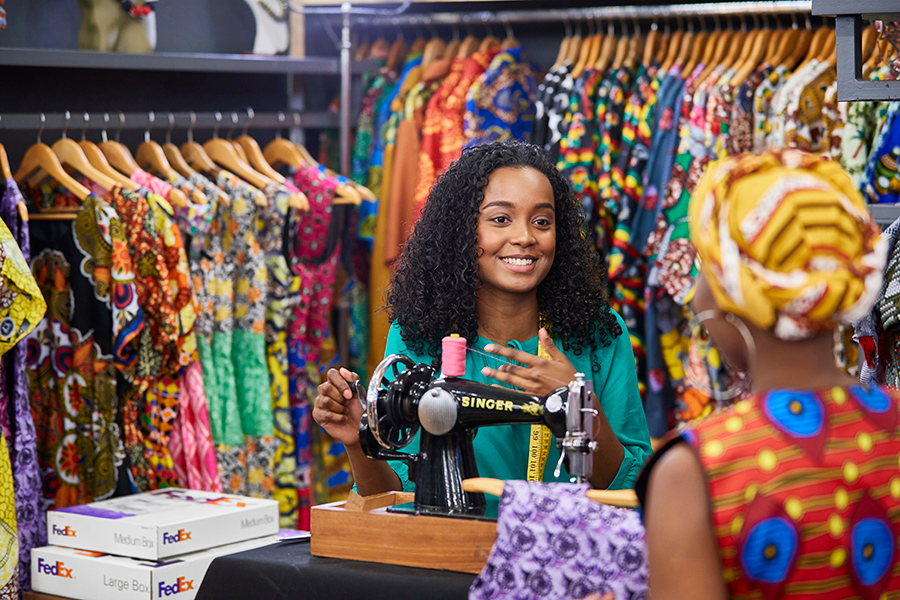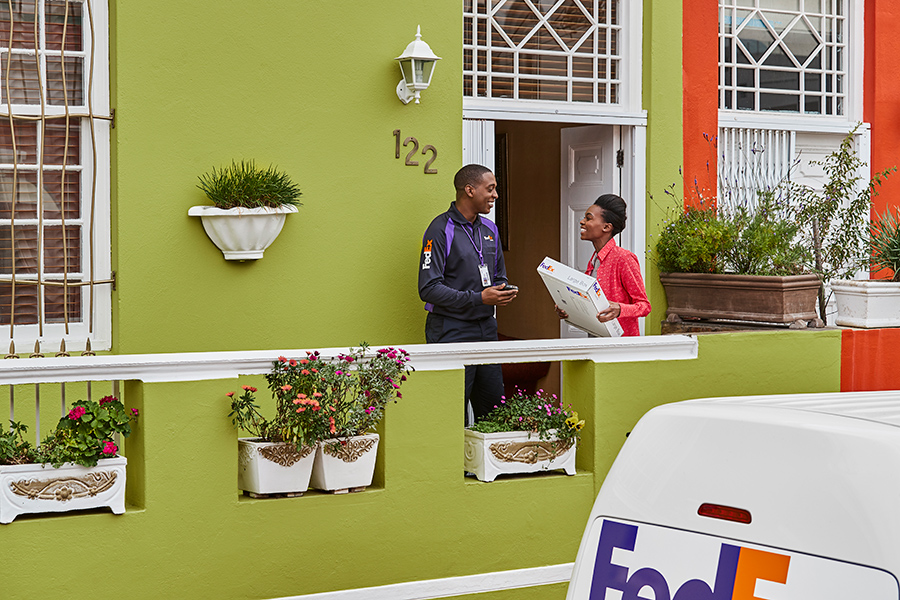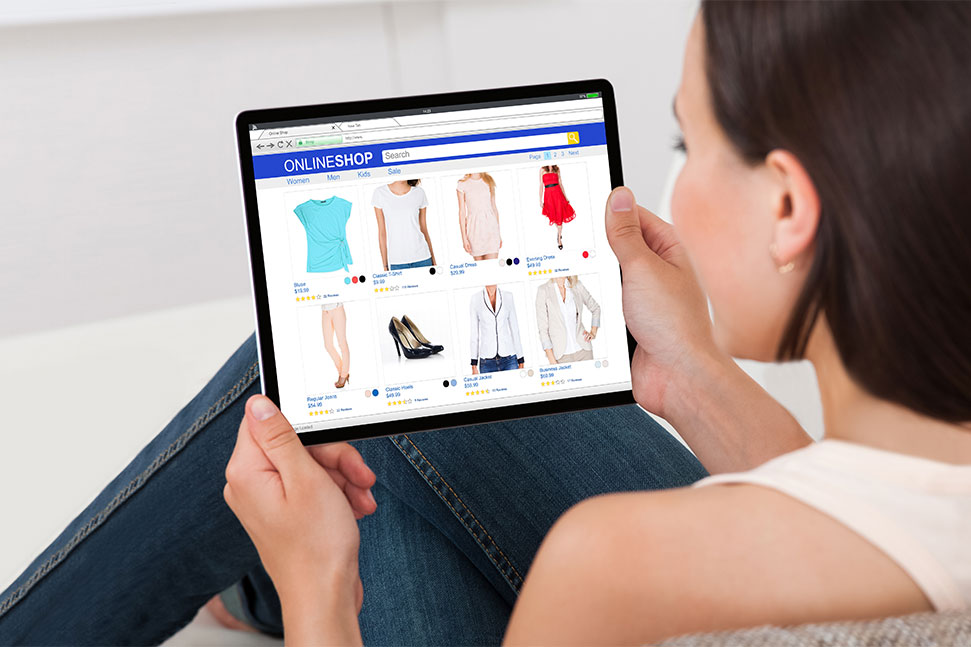Mobile Commerce Is Helping To Drive Growth Across Africa
The success of mobile commerce is boosted by logistics, connecting retailers with customers across the African continent, and around the world.
E-commerce has evolved as one of the largest drivers of retail trade today, providing consumers with a way to shop for goods that is convenient and available on-the-go.
Worldwide, consumers are not just online, they are on their phones buying what they want, when they want, wherever they are. Mobile commerce fits this evolving customer demand, with the tool to purchase already in the customer’s hand or pocket.
In South Africa, e-commerce makes up a relatively small 3% of retail sales, but in international markets e-commerce has already captured a larger share of total retail transactions. In the USA, for example, e-commerce represents around 13% of all retail sales, a share that has doubled in the past five years.
Mobile commerce is playing a huge role in the growth of online shopping across the continent, with a recent report showing that South Africa recorded the highest share of mobile as a part of total e-commerce from the top 5 African markets, accounting for 63% of the total e-commerce share.
It’s never been more important for retailers to help their customers purchase via whatever channel they prefer – including mobile, and partner with a reliable global logistics provider like FedEx with smart tools to help them access new markets, provide solutions that work for their business, and delivery options that meet customer expectations.
Worldwide, consumers are not just online, they are on their phones buying what they want, when they want, wherever they are. Mobile commerce fits this evolving customer demand, with the tool to purchase already in the customer’s hand or pocket.
In South Africa, e-commerce makes up a relatively small 3% of retail sales, but in international markets e-commerce has already captured a larger share of total retail transactions. In the USA, for example, e-commerce represents around 13% of all retail sales, a share that has doubled in the past five years.
Mobile commerce is playing a huge role in the growth of online shopping across the continent, with a recent report showing that South Africa recorded the highest share of mobile as a part of total e-commerce from the top 5 African markets, accounting for 63% of the total e-commerce share.
It’s never been more important for retailers to help their customers purchase via whatever channel they prefer – including mobile, and partner with a reliable global logistics provider like FedEx with smart tools to help them access new markets, provide solutions that work for their business, and delivery options that meet customer expectations.

For small and medium-sized enterprises looking to expand to international audiences, investing in e-commerce while considering how this will look, and if it’s easily accessed via mobile devices, is a smart step to reaching more customers and new markets. Pair this expanded audience with the services and solutions provided means that businesses benefit from global reach and a seamless shipping experience.
Social platforms are making it easier to discover (and buy) new products and services
As consumer expectations change, web users are also driving this ‘social commerce’ evolution. The web user of today is also a consumer. The audience is the market, and retailers should understand this when planning their mobile and e-commerce approach.
Dynamic social content that allows social-media users to buy products on platforms like Instagram are an important part of this mobile commerce growth such as, an outfit for someone you follow on Instagram? It’s likely they’ll have a link to the brand or the item. Similarly, you might buy a specific kitchen tool being used by a cook in a Facebook reel, or TikTok story. The benefit to the consumer is they’re making a purchase decision based on “seeing” the product in use, often with commentary from the user.
To make the most of how consumer purchases are evolving, retailers should offer content about the item not just a description of the item and an “add to cart” button. This can come in the form of sponsorships, partnerships, or by creating their own branded content. Artificial Intelligence can also guide businesses to the most engaged audiences and highlighting where they are and the content, they are most likely to engage with, including their purchase decisions.
Building trust and making the app marketplace work for consumers
Another new frontier is app-based commerce. Many operating systems – such as Apple’s iOS - require users to opt in to receive communication from online retailers and app-based platforms like Facebook, Instagram, and TikTok.
Social platforms are making it easier to discover (and buy) new products and services
As consumer expectations change, web users are also driving this ‘social commerce’ evolution. The web user of today is also a consumer. The audience is the market, and retailers should understand this when planning their mobile and e-commerce approach.
Dynamic social content that allows social-media users to buy products on platforms like Instagram are an important part of this mobile commerce growth such as, an outfit for someone you follow on Instagram? It’s likely they’ll have a link to the brand or the item. Similarly, you might buy a specific kitchen tool being used by a cook in a Facebook reel, or TikTok story. The benefit to the consumer is they’re making a purchase decision based on “seeing” the product in use, often with commentary from the user.
To make the most of how consumer purchases are evolving, retailers should offer content about the item not just a description of the item and an “add to cart” button. This can come in the form of sponsorships, partnerships, or by creating their own branded content. Artificial Intelligence can also guide businesses to the most engaged audiences and highlighting where they are and the content, they are most likely to engage with, including their purchase decisions.
Building trust and making the app marketplace work for consumers
Another new frontier is app-based commerce. Many operating systems – such as Apple’s iOS - require users to opt in to receive communication from online retailers and app-based platforms like Facebook, Instagram, and TikTok.

Whatever the platform, customers can agree to hear from those companies they’re interested in or have a deeper relationship with. Building this kind of familiarity means building trust and connecting with consumers on the platforms where they are most active.
A successful purchase only ends when the goods arrive – and making sure they arrive on time, and in good condition will continue to build that trust the consumer has with your business. FedEx has been supporting businesses across Africa as they evolve and grow, and we’re here to help you make sure the next time a customer thinks about, or sees one of your products, they’re keen to get their phone out, and make that purchase!
For more insights on e-commerce and growth opportunities for small businesses, please visit our SME page here.
A successful purchase only ends when the goods arrive – and making sure they arrive on time, and in good condition will continue to build that trust the consumer has with your business. FedEx has been supporting businesses across Africa as they evolve and grow, and we’re here to help you make sure the next time a customer thinks about, or sees one of your products, they’re keen to get their phone out, and make that purchase!
For more insights on e-commerce and growth opportunities for small businesses, please visit our SME page here.
***



















 The Latest
The Latest